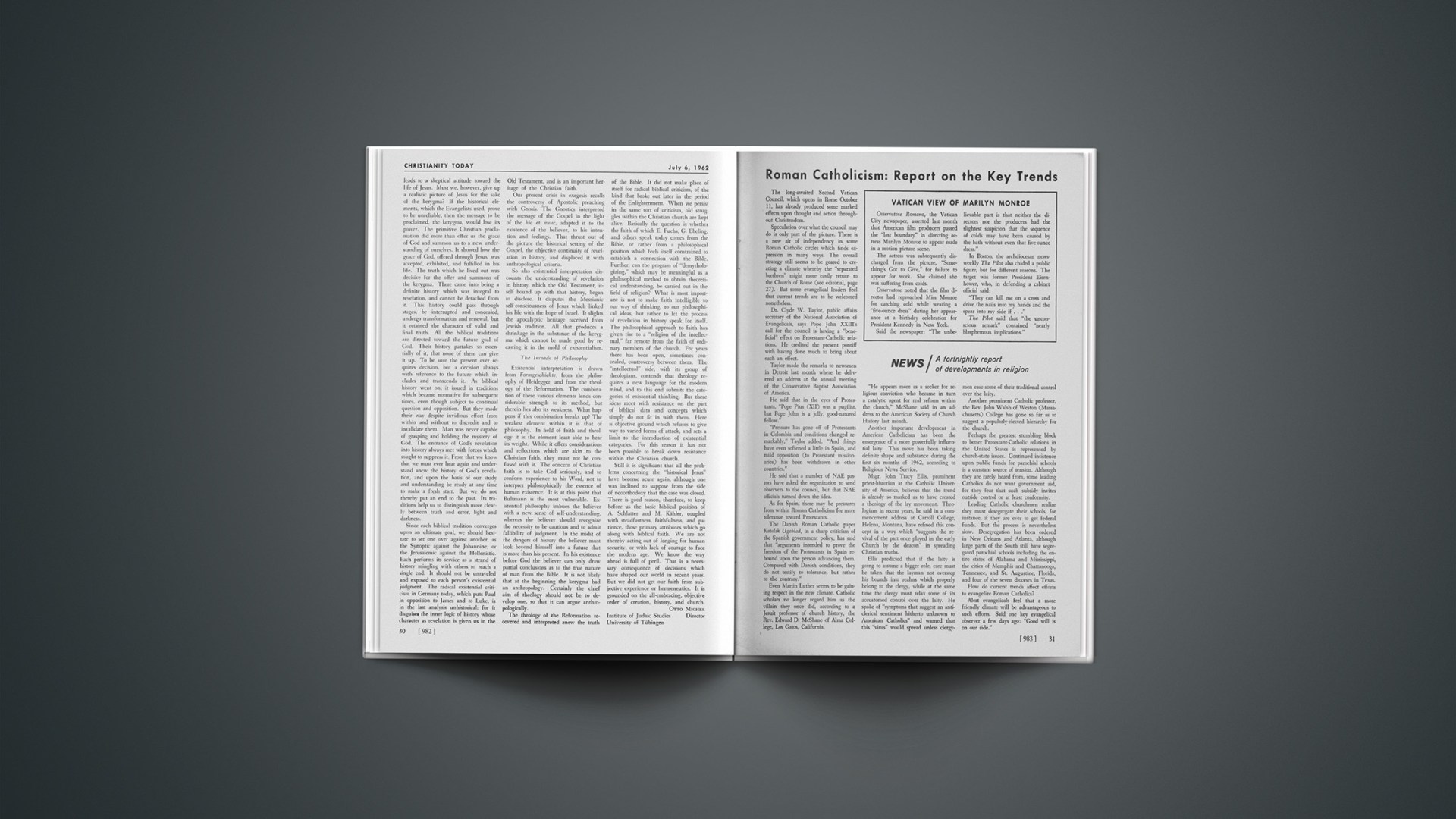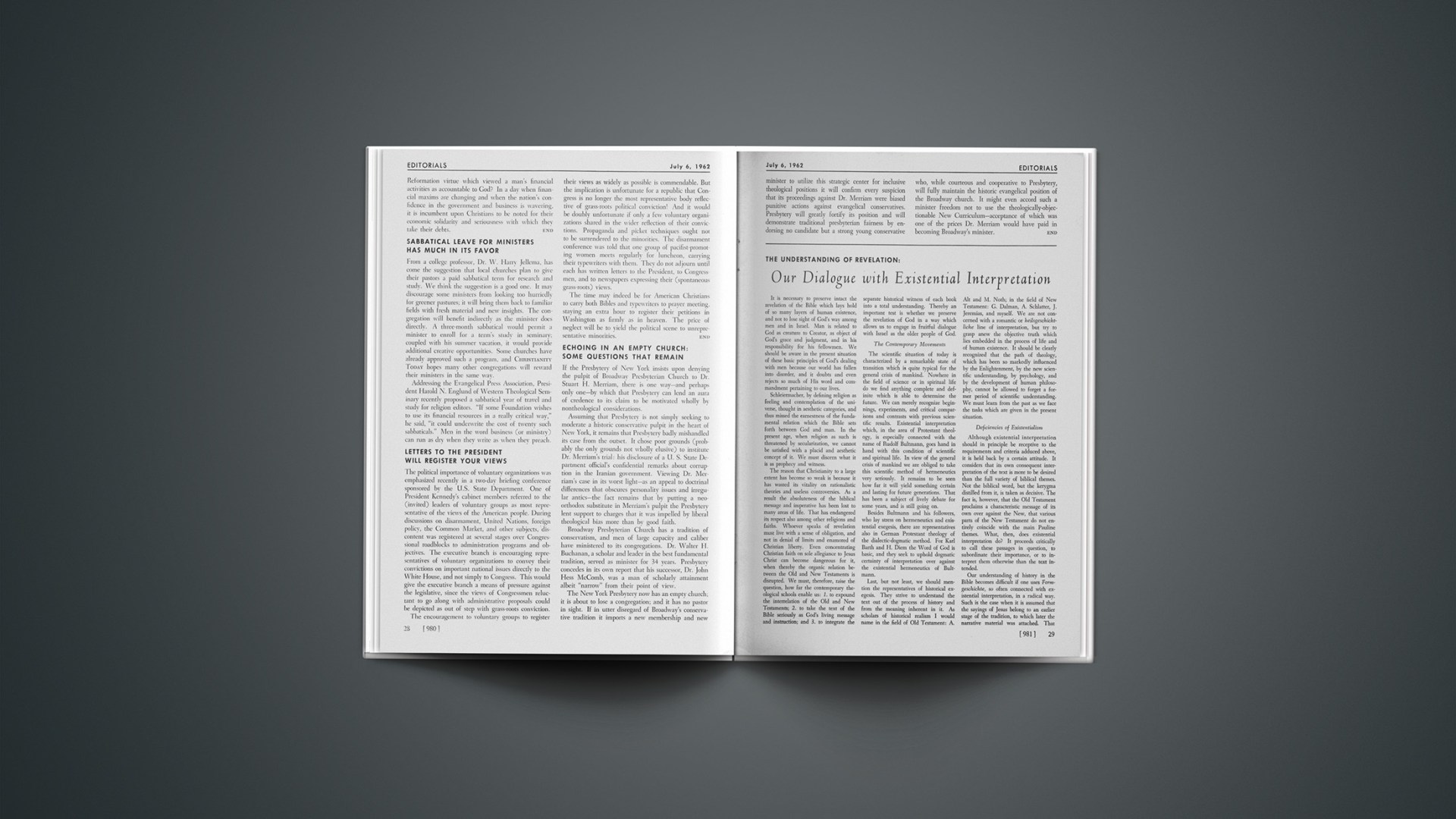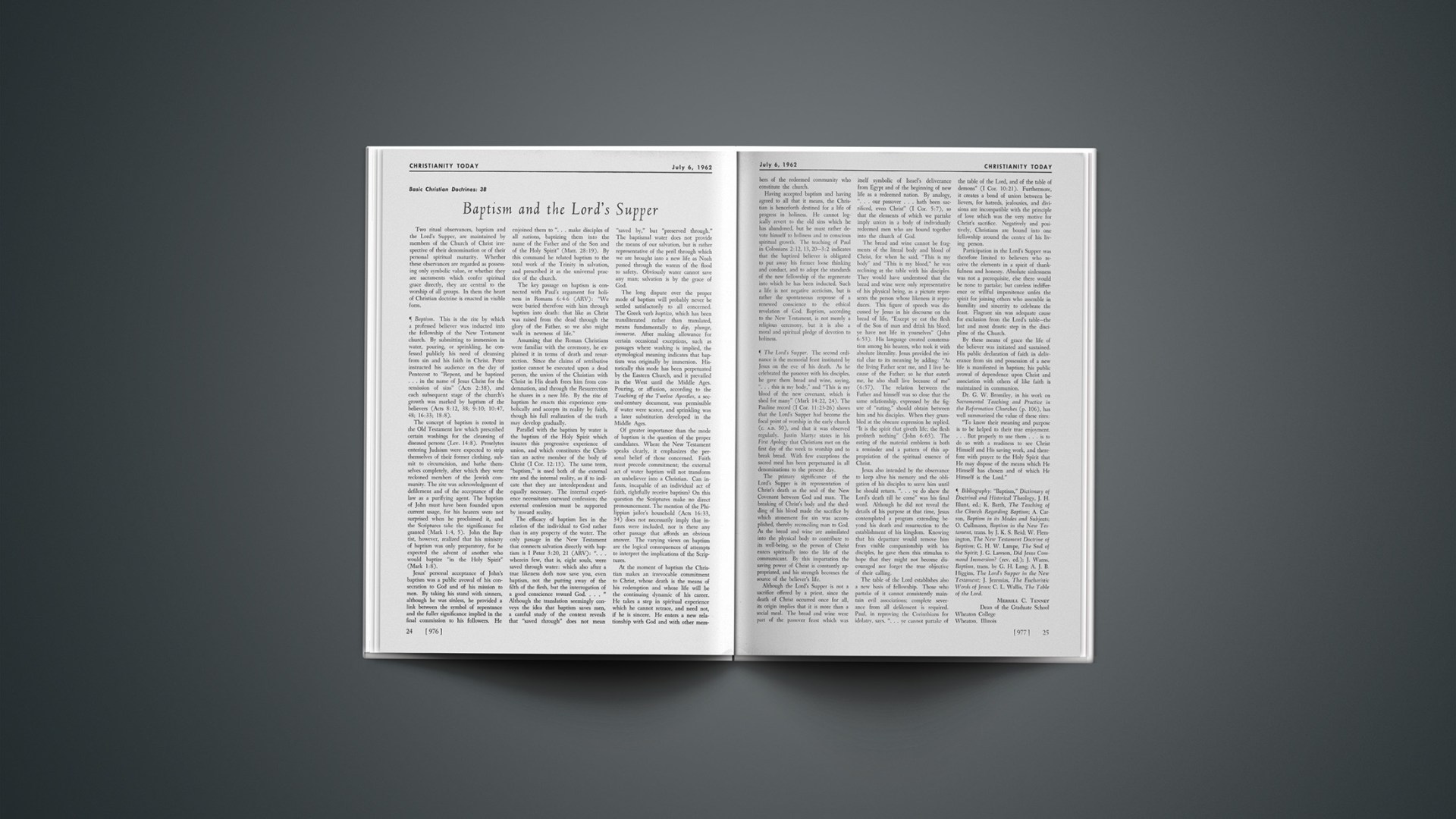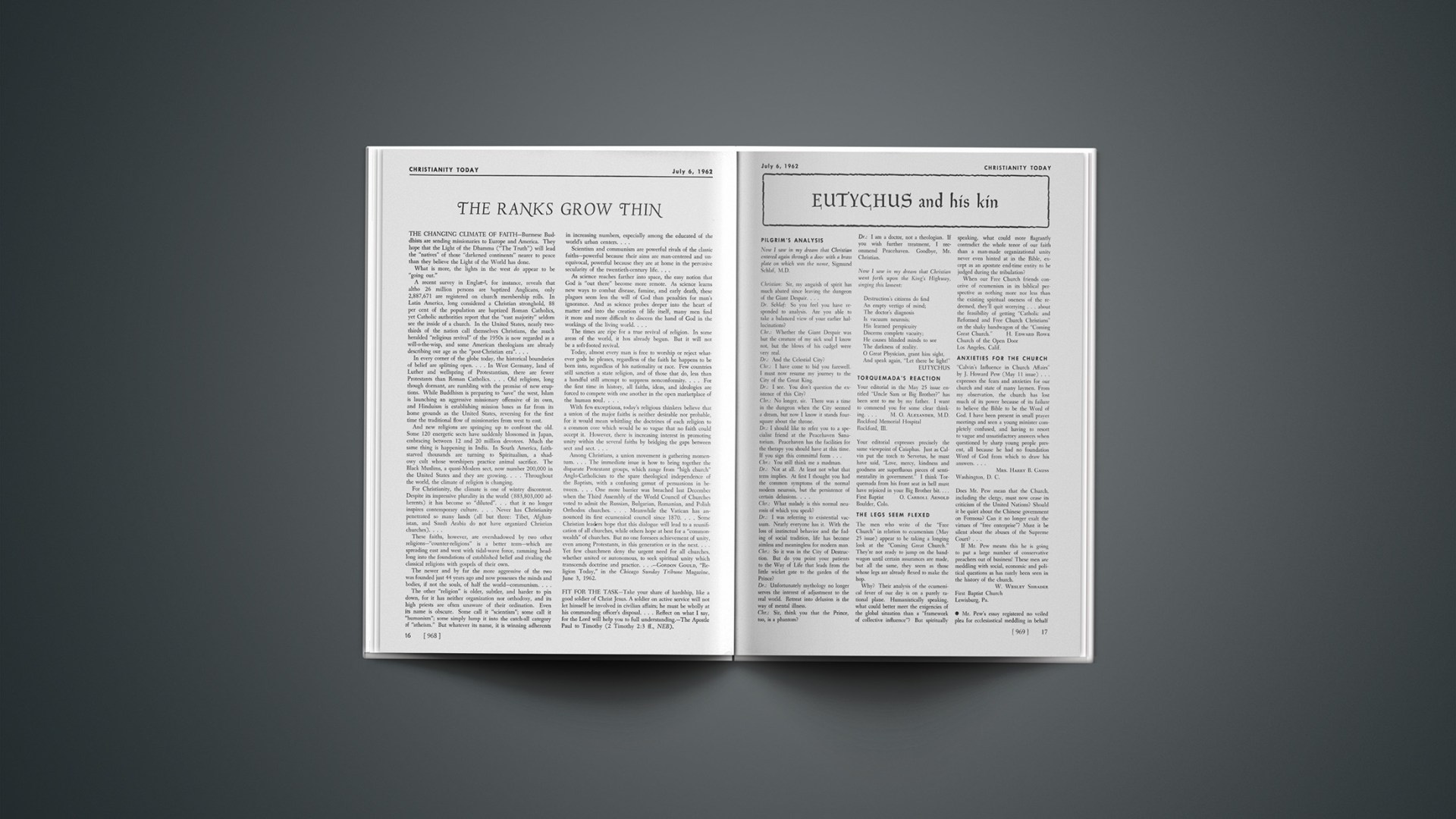Thy kingdom come (Matt. 6:10a; read 6:5–15).
Our Lord teaches us to pray that the Kingdom come, not that it be created. What does this mean to us who pray? The twofold reply concerns the Kingdom here and now.
I. The Extent of the Kingdom.
A. The material realm. Here the interpreter voices truth for our “atomic age.”
B. The mental realm. All the powers of thought under His control. All poetry and all other arts to be under His divine direction. What an ideal!
C. The moral realm. He alone to rule the world and us in matters of right and wrong, such as war.
D. The spiritual realm. Ideally, Ruler over all that concerns men’s souls, now and ever.
II. The Expression of the Kingdom. So far, the ideal; now, the facts.
A. Actual, though largely unseen, Christ rules now.
B. Active. He reigns in believing souls, among merchant princes, and in men of science, though not yet in all.
C. Acknowledged. By the Church through her spiritual leaders. Largely what the Church is for.
D. Accepted by the individual. What else does it mean to be a Christian?
“How far are we exhibiting to the world the Kingship of Christ, and so revealing the King Himself?… Let every man or woman at this hour by solemn affirmation and solemn oaths surrender to the King, saying: ‘Here, O King, is my life. Rule over it; be its Master. Realize Thy purpose therein. Take the territory and subdue it to Thy perfect will. Through it show my children … and all the people I meet what is the meaning of Thy great Kingdom.’ ”
The Westminster Pulpit, Revell, n.d. Vol. V, pp. 260–273.











